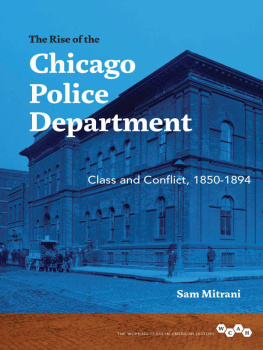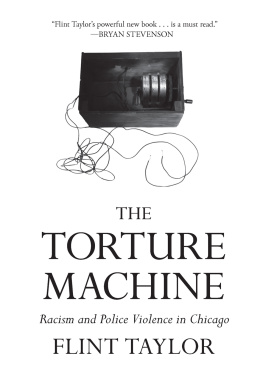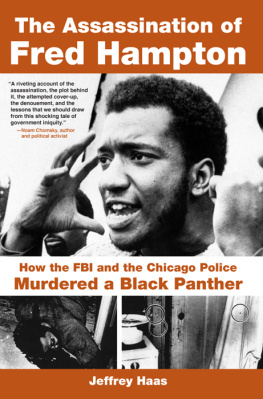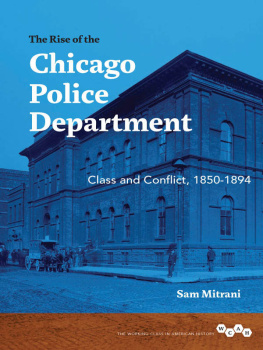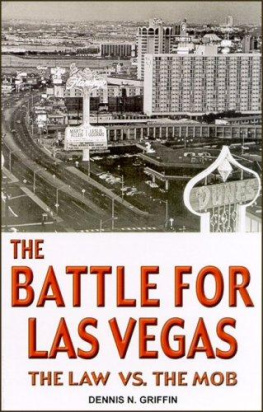
Copyright 2015, 2016 by Fred Pascente and Sam Reaves
All rights reserved
First hardcover edition published 2015
First paperback edition published 2016
Published by Chicago Review Press Incorporated
814 North Franklin Street
Chicago, Illinois 60610
ISBN 978-1-61373-134-5 (hardcover)
ISBN 978-1-61373-683-8 (paperback)
Library of Congress Cataloging-in-Publication Data
Pascente, Fred, 19422014.
Mob cop : my life of crime in the Chicago Police Department / Fred Pascente, Sam Reaves.
pages cm
Summary: The tell-all memoir of a Chicago police officer and mafia associate who played both sides of the lawProvided by publisher.
Includes bibliographical references.
ISBN 978-1-61373-134-5 (hardback)
1. Pascente, Fred, 19422014. 2. Chicago (Ill.). Police DepartmentCorrupt practices. 3. PoliceIllinoisChicagoBiography. 4. Police corruptionIllinoisChicago. 5. Organized crimeIllinoisChicago. I. Reaves, Sam, 1954II. Title.
HV7911.P366A3 2015
364.1092dc23
[B]
2015002298
Cover design: John Yates at Stealworks
Cover photos: Chicagos Rush Street in the 1960s, source unknown;
Fred Pascentes mug shot from the Excluded Person List, courtesy of the
Nevada State Gaming Control Board
Interior design: PerfecType, Nashville, TN
Printed in the United States of America
5 4 3 2 1
To my father, who would not approve of this at all.
And I apologize, because I know youre in heaven.
CONTENTS
1
THERE YOU GO
T he calls came at three in the morning sometimes, the bleating of the phone tearing Fred Pascente out of a deep sleep. Those were the hard ones, the ones that got him out of his bed in a bungalow on a quiet street in Melrose Park, Illinois, a blue-collar town on the western fringe of Chicago. The hardest were the ones that took him out into the dead of a bitter winter night, a harsh wind in his face and hundreds of miles ahead of him.
Other times the calls interrupted dinner or deep-sixed plans for an evening on the town with May, his wife. They took him away from family celebrations and card games; they cut short shopping trips and movie outings. When the calls came it was drop-everything time, and the cell phone was always on.
When the calls came, it meant somebody somewhere needed something and needed it now. Fred Pascente climbed into his well-traveled Chevy Silverado and drove. Sometimes the first stop was OHare or Midway to meet a flight; he had Homeland Security clearance foraccess to secure parts of both airports. Often it was a hospital: Loyola Medical Center in Maywood, just down the road from his house, or one of the cluster of institutions in the Illinois Medical District, a massive hospital complex on Chicagos Near West Side that looms over the old Italian neighborhood on Taylor Street.
Occasionally there was time to grab a cup of coffee or a sandwich; often there was no time to do anything but jump on the expressway and get there, fast. And sometimes it was hurry up and wait, stand around and banter with the security guard while a team of doctors packed up something that would save a patients life in Minneapolis or St. Louis.
The security guards liked him. Fred was good at the banter, the jokes and the jibes and the bullshithed been doing it all his life. Fred Pascente still moved like the athlete hed been in his youth, a big man and still robust, curly black hair gone mostly gray and face filled out, carrying the weight from a lifetime of good Italian cooking but carrying it well. He liked to laugh and to make other people laugh; make him wait by the door with the security guard and in two minutes hed make a new friend.
Fred Pascente was an independent hauler of emergency freight. Working mainly for a courier company based in Rosemont, Illinois, hard by OHare, he was on call from nine at night to six in the morning, six or sometimes seven days a week, to deliver medicines, freshly harvested organs, whatever needed to get from Chicago to somewhere else, usually in the Midwest but sometimes as far away as New Jersey. He delivered vital parts to a Lear jet stranded on the tarmac in Cincinnati and isotopes for surgery to a hospital in Madison, Wisconsin.
He got paid per job plus mileage and expenses; he made a good check. He needed it. At seventy-two Fred Pascente was still a 1099er, hustling to make the nut. His kids were grown, but there was a wife to support, a mortgage to pay, and repairs to make, grandkids to buy presents for, friends to buy drinks for. And there was no pension and never would be.
The pension was supposed to come after a twenty-six-year career as a Chicago police officer, but it went up in smoke when a pension board ruled that a man who did the things Fred did doesnt deserve to retire on the taxpayer dime. If you asked Fred what those things were, hed tell you. Fred wouldnt give you excuses. What he did, he did, and thats why he was out there on the road at seventy-two years old instead of in a beachside condo in Florida or a house on the edge of a golf course in Vegas.
Las Vegas was another thing that had gone up in smoke; Fred spent a lot of time in Vegas over the years, but that was all over. The people that run Nevada have certain standards to maintain, and some years ago they were persuaded that Fred Pascente failed to meet them. Nevada officials keep something called the Black Book. You wont find a copy at the library, but you can see it online. Its official name is the Excluded Person List of the Nevada State Gaming Control Board, and you can find it on the GCBs website. If you went to the Excluded Persons page and scrolled down a few rows, youd see Fred Pascentes photo there. This is the list of people who are banned for life from entering any casino in the State of Nevada. They would commit a felony by doing so, and a casino that fails to report the presence of a listed individual on its premises will be sanctioned.
Out of all the wiseguys, card counters, and slot cheats in the country, the Black Book currently lists just over thirty people, making it a very exclusive clubmore exclusive than the United States Senate, as Fred liked to point out. Past honorees, now deceased, include names a lot better known than Freds: Giancana, Caifano, Spilotro. Pride isnt exactly the word for what Fred felt about his listing, but in the circles he moved in for much of his life, it was a mark of distinction.
It wasnt the only one in Freds life. There were also the police department commendations: for breaking up a rape in progress or nabbing a prolific North Side burglar. There was the write-up in Gay Life magazine for collaring a predator who had been drugging androbbing gay men in Chicago and other cities across the country. Those awards tend to complicate a persons attitude toward Fred Pascente just a little. We like to think that the line is sharp and clear between good guys and bad guys, white hats and black hats, cops and crooks. Freds career says otherwise.
Hes a scumbag, said a veteran Chicago law enforcement figure, a longtime organized crime foe with no sympathy for wiseguys. Hes a nice guy, said another retired copper, equally straight but perhaps a little more willing to separate professional from personal criteria. Comments posted on Second City Cop, a blog on Chicago police affairs, were split: Fred was a good detective with a dogged determination to lock up bad guys, read one comment. Another responded: If we looked at those arrest reports of yore Im sure the bad guys were just fellow hoods taking away business from the guys Freddie was looking out for. Ambivalence reigned in Freds career: in the game of cops and robbers he was both a cop and a robber.
Next page
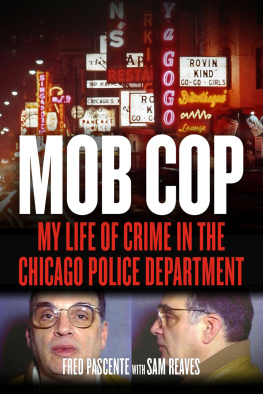
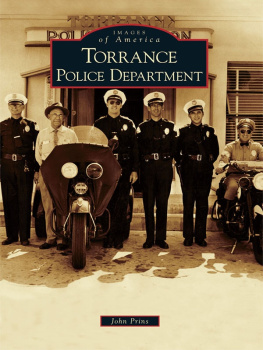
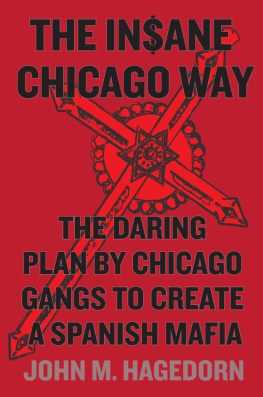

![Pileggi - Casino [eBook - NC Digital Library]: Love and Honor in Las Vegas](/uploads/posts/book/227422/thumbs/pileggi-casino-ebook-nc-digital-library-love.jpg)

